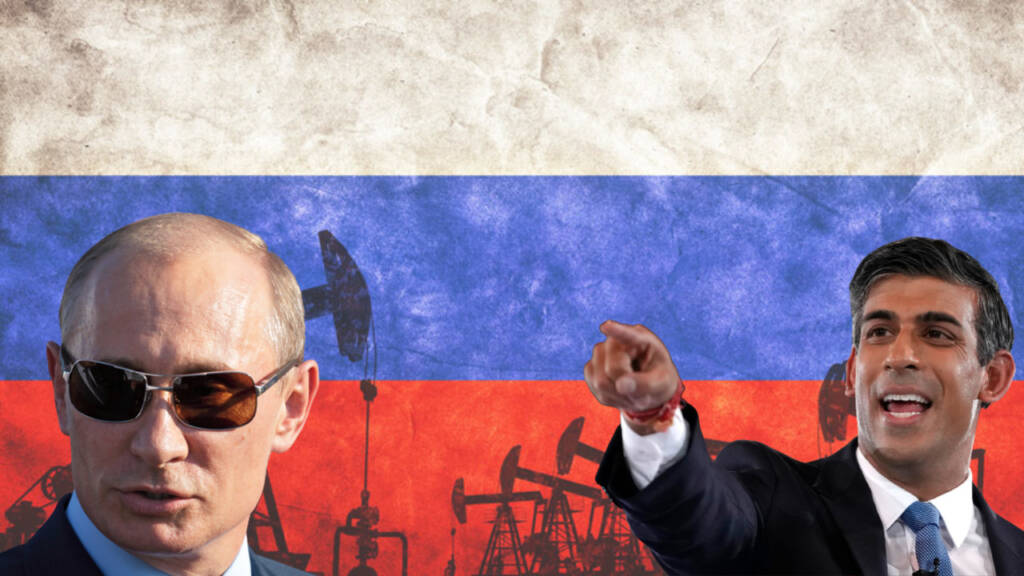Western sanctions were placed on Russia due to its invasion of Ukraine, primarily targeting oil and oil-related products. The UK and other G7 countries implemented measures aimed at undermining Russia’s economic and financial strength. However, the impact of these sanctions do not align with their intended effects. The true consequences might be more nuanced than what is presented on paper.
Scrutinizing the UK’s Restriction on Russian Oil
The UK’s ban on Russian oil encompasses several aspects. This prohibition entails the prevention of importing, acquiring, supplying, and delivering Russian oil and oil products within the UK, along with the associated ancillary services connected to these activities. Commencing on December 5, 2022, this ban applies uniformly across England, Wales, Scotland, and Northern Ireland. Notably, this commencement date is in synchronization with the European Union’s embargo on the importation of seaborne crude oil originating from Russia.
Additionally, it includes restrictions on insurance and financing for the transportation of Russian oil, particularly via maritime routes, to third countries. This measure indicates a coordinated effort by the UK and the EU to impose constraints on Russian oil-related activities, presumably as a response to the geopolitical context involving Russia’s actions in Ukraine.
Read More: Europe cannot get out of Middle East- Russia oil supply chain without bankrupting itself
The Role of Russian Oil in UK Aviation
Billboards in London have brought attention to a notable aspect of the UK’s energy consumption: approximately 1 in 20 flights within the country continue to rely on Russian oil. This revelation underscores the British government’s continued reliance on a key export of the Kremlin. The billboards depict Russian President Vladimir Putin in a pilot’s role, accompanied by attendants Rishi Sunak and Jeremy Hunt. This visual representation serves to highlight the British government’s involvement and, in a sense, partnership with the Russian oil industry. Despite measures such as sanctions and embargoes, these billboards suggest that the UK has not been able to fully remove Russian oil from its energy matrix. The visual campaign serves as a public-facing statement of the persisting presence of Russian oil in the UK’s energy landscape, potentially prompting discussions about the nation’s energy sourcing strategies and its geopolitical implications.
UK defying European sanctions
A significant development has come to light in relation to the European sanctions on Russia. A prominent loophole in the sanctions framework allows for the importation of fuels derived from Russian oil, as long as the refining process has taken place in a different location. This mechanism has facilitated the introduction of Russian crude-derived fuels into the UK market. Notably, countries like India and Turkey have served as refining points for Russian crude oil, which is subsequently imported into the UK.
An interesting consequence of this arrangement is that a notable portion of the UK’s jet fuel supply is now reliant on this loophole. In fact, the equivalent of approximately 1 in 20 flights in the UK operates using fuel that originates from Russian crude oil. Data provided by Kpler, a specialized analytics firm, highlights that the UK has engaged in significant jet fuel imports from three Indian refineries. It is pertinent to note that approximately 40% of the raw material for these refineries is sourced from Russia. This Russian crude is then blended with crude oil from other origins and subjected to the refining process, resulting in the production of various oil products, including jet fuel.
This revelation underscores the intricate and interconnected nature of global energy supply chains. While sanctions and embargoes are designed to restrict direct imports of certain products, such indirect mechanisms reveal how countries can still engage with restricted sources through intermediary actors.
Read More: Biden’s ban on American oil production is now drilling a hole in the citizens’ pockets
UK’s Involvement in Russian Oil Trade
The UK’s consumption of refined Russian oil plays a role in supporting the Kremlin’s export activities and its associated revenues. The display of billboards is a component of an initiative led by Global Witness, aimed at urging the closure of the refining loophole. This campaign is intended to convey to the UK government that any participation in the Russian oil trade indirectly contributes to the financing of the conflict in Ukraine. Throughout the course of the conflict, the UK has continued to import oil originating from Russia, facilitated through intermediaries such as India, while maintaining an outward appearance of steadfast allegiance within the G7 framework. The scenario highlights the level of duplicity in the UK’s actions and its international stance.
Watch More:
